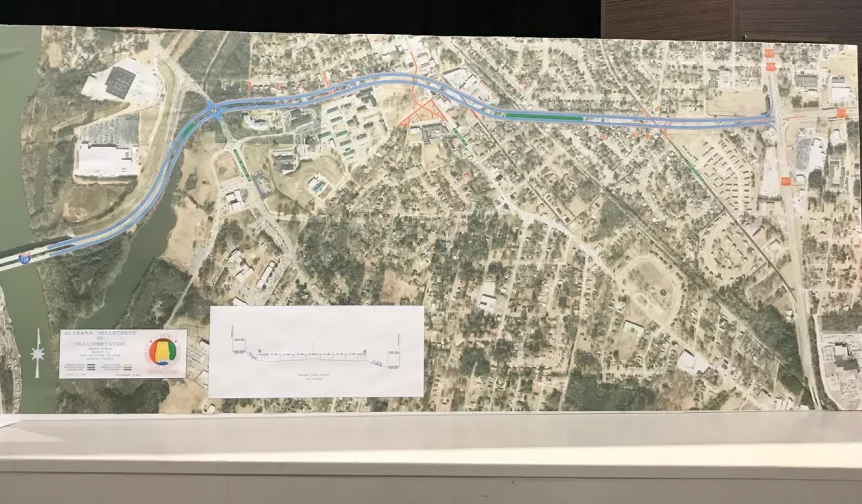The Eastern Connector — formally referred to as the I-759 extension — is going to be a reality, Alabama Department of Transportation Director John Cooper announced Wednesday in Gadsden.
The roadway, to be built as a Rebuild Alabama project, will connect the eastern end of Interstate 759 to U.S. Highway 431 at the junction of U.S. Highway 278.
It’s a project that’s been the topic of discussions and dreams for decades; Cooper said people should be driving on it within five years, and not more than five years from now.
The project was announced during a special called meeting of the Gadsden Metropolitan Planning Organization.
Rebuild Alabama projects are funded from a new gas tax signed into law in 2019. Cooper said the connector project will cost $65 million. He also talked about a $34 million project to complete the widening of U.S. 411 from north Gadsden into Cherokee County.
Cooper said there are different kinds of projects funded through Rebuild Alabama; this project is for congestion mitigation. It will take pressure off the Meighan Boulevard and the Meighan bridge, through downtown, he explained.
“We’re going to move the same people through Gadsden,” Cooper said, “but we’re going to give them a better path.”
“For the whole 16 years I’ve been mayor, extending I-759 has been one of my major infrastructure goals,” said Gadsden Mayor Sherman Guyton. “Throughout all the holds and delays over the years, my administration has continued to work to make this happen.”
The project will be a roughly 2-mile, four-lane curb and gutter highway. It’s not a true extension of I-759, Cooper explained, because rights-of-way issues prevented that. It will, however, connect the interstate to the two major roadways, and alleviate traffic congestion.
Cooper said a design firm is already working on the project, and right of way acquisition should begin in October. He said work to move utilities in the area will need to be largely complete before construction can begin.
Actual construction bids should be let by the end of 2023, no later than early 2024, he said. “We’re going to be working, actively, in the field by October,” he said.
ALDOT Regional Engineer Curtis Vincent said actual construction should take two and a half or three years. Cooper gave a five-year estimate for the total project.
“You’re going to get tired of the orange barrels,” Cooper said.
A good bit of time “and a fair amount of money” was spent on a survey a few years ago, Cooper said, to see if ALDOT could get this done, “and we can.”
The transportation director said he didn’t know how many times Guyton had called him about the project, continuing to push for it even when it appeared the project was dead.
Attalla Mayor Larry Means joked that he did know how many times: 1,182 times. He said he’d heard about the project for 16 years. “This is a great day for the whole county,” he said.
He recalled that the late Rep. Jack Page had advocated for the project during his time in the Legislature.
“This takes a lot of people working together,” Means said.
Cooper mentioned the ongoing efforts of members of the present, and one former member, of the local legislative delegation: Becky Nordgren, Craig Lipscomb, Gil Isbell and Andrew Jones.
Isbell, R-Gadsden, said it was an exciting day. “It’ll have a profound effect on economic development,” he said, noting that it would not have been possible without Rebuild Alabama.

